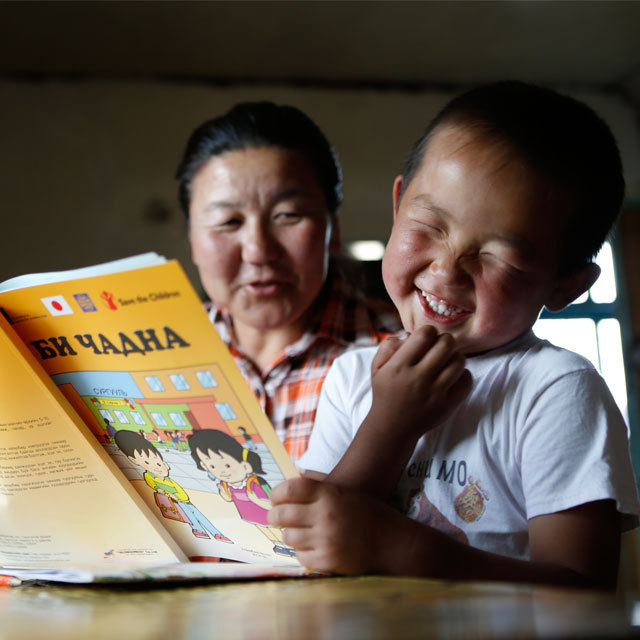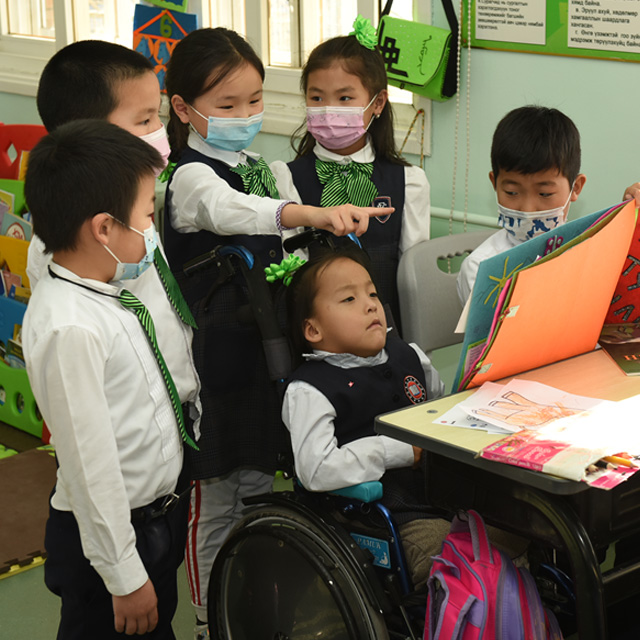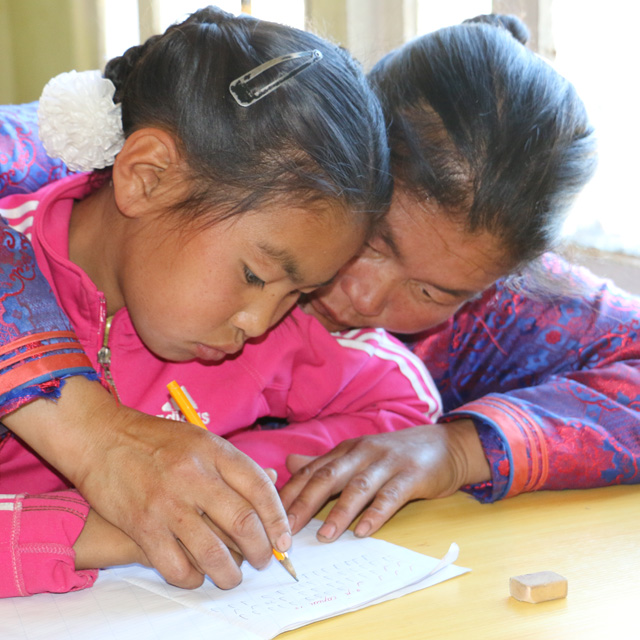Education Program
Save the Children is committed to ensuring that every child has the right to quality education, regardless of their location, gender, ethnicity, or social status. We support the implementation of national education programs and legislation, and we focus on improving accessibility to and quality of pre-school education, basic education, and non-formal education.
Save the Children also works on early childhood care and development, inclusive education, and education in disasters and emergencies. We have carried out major projects and programs over the years: National Policy on Integrated Early Childhood Development, Promoting the Implementation of the Law on Education and Improving the Management and Monitoring System, Improving the Quality of Pre-school and Primary Education, Education of Children from Herder Families, and Home-Based School Preparation Program.
With funding from the Japan Social Development Fund, a World Bank Group Trust Fund, we implemented the project Improving Primary Education Outcomes for the Most Vulnerable Children in Rural Mongolia from 2012 to 2017.



